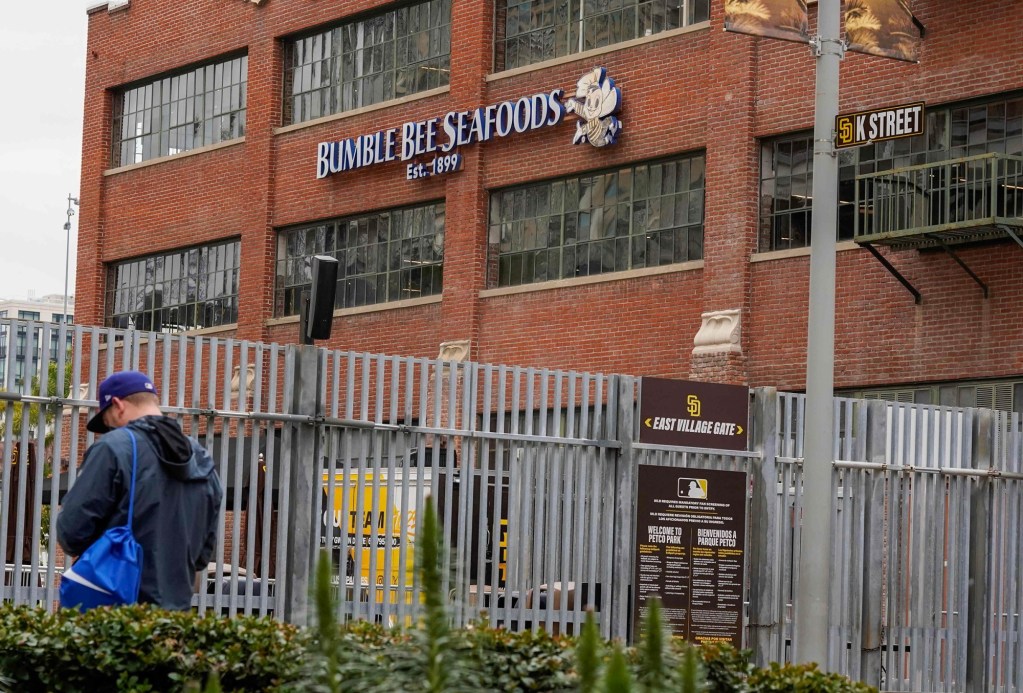UPDATE: A federal judge in San Diego has just allowed a groundbreaking human trafficking lawsuit against Bumble Bee Seafoods to advance toward trial. This decision, made on Wednesday, marks a significant victory for four Indonesian mariners who allege severe human rights violations, including forced labor and physical abuse, while working on tuna boats linked to the company.
U.S. District Court Chief Judge Cynthia Bashant denied Bumble Bee’s request to dismiss the case, allowing the plaintiffs to present their claims in court. This lawsuit is believed to be the first of its kind against an American seafood company, making its implications monumental for labor rights activists worldwide.
“This is a historic moment and an incredible victory for the fishers and the ocean,” stated Sari Heidenreich, senior human rights advisor with Greenpeace USA, which is representing the plaintiffs. Heidenreich emphasized that this ruling not only benefits the four brave men involved but also stands for the rights of hundreds of thousands of fishers globally.
The plaintiffs, who filed the suit in March 2023, allege they endured months of brutal conditions aboard vessels that are part of Bumble Bee’s “trusted fleet.” They claim to have been subjected to debt bondage, physical abuse, inadequate food, and denial of medical care—despite promises of good jobs. Their experiences highlight a long-standing issue of forced labor in the fishing industry, a problem that Bumble Bee has been accused of ignoring for years.
Bumble Bee’s attorneys argued that the company could not be held liable for actions taken by foreign actors on fishing vessels. However, Judge Bashant ruled that the plaintiffs presented sufficient evidence suggesting Bumble Bee was aware of forced labor practices and failed to act adequately. Bashant noted that the plaintiffs have shown Bumble Bee likely had “notice” about the labor conditions on the vessels it sources from.
“We are filled with hope for justice,” said plaintiff Muhammad Syafi’i, who expressed his emotional reaction to the ruling. “Our fight and sacrifice are not in vain… I remain steadfast, strong, and enthusiastic.”
While the judge ruled in favor of Bumble Bee regarding one aspect—denying the plaintiffs’ request for injunctive relief aimed at reforming labor practices—the case’s progression signals a critical moment for labor rights in the seafood sector.
Bumble Bee, which was sold for nearly $1 billion in 2020 following a bankruptcy, responded to the ruling by stating they cannot comment on ongoing litigation. They reiterated their commitment to eradicating forced labor within their supply chain and emphasized the complexities of ensuring responsible treatment of fishers at sea.
The lawsuit also highlights Bumble Bee’s troubled history, including a 2018 guilty plea for price-fixing, which resulted in a $25 million fine. Critics argue that Bumble Bee has lagged behind other brands in addressing forced labor, with reports indicating that their tuna has been sourced from ships under scrutiny for human rights abuses.
The plaintiffs allege that Bumble Bee’s failure to act on known violations not only violates the federal Trafficking Victims Protection Reauthorization Act but also reflects negligence in ensuring ethical sourcing practices. As the case moves forward, it raises critical questions about accountability and transparency in the global seafood supply chain.
While a trial date has yet to be set, the judge has given the plaintiffs until December 3 to amend their complaint if they wish to challenge the dismissal of their claims for injunctive relief.
The urgency and significance of this lawsuit cannot be overstated. It represents a crucial step toward justice for countless individuals trapped in exploitative labor conditions within the fishing industry. As the case unfolds, the eyes of human rights advocates and consumers alike will remain on Bumble Bee Seafoods and its practices.







